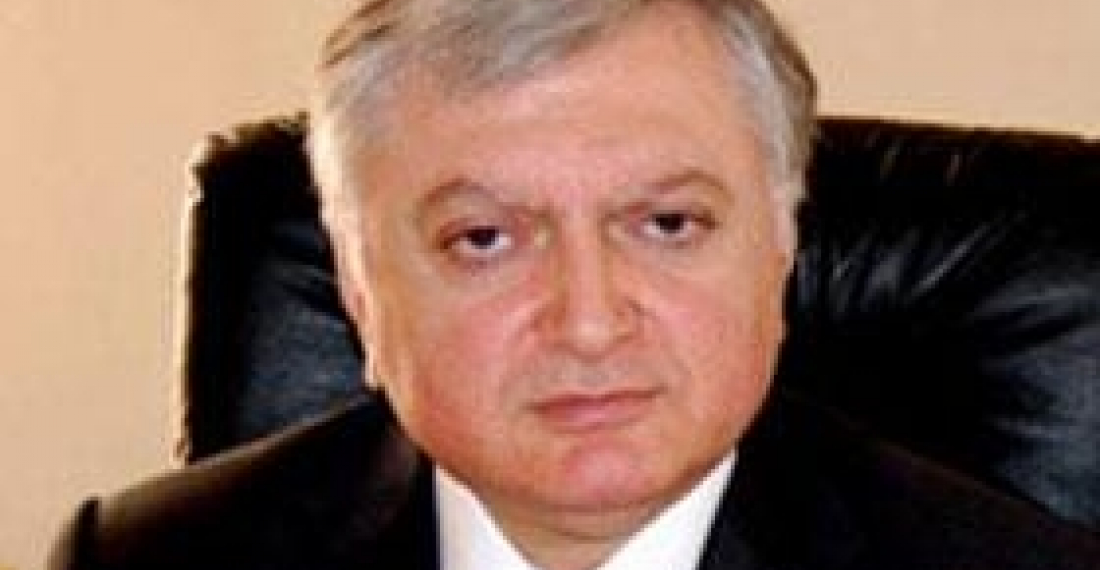В отличие от Азербайджана, где очень много звучит критики в адрес посредников-сопредседателей Минской группы ОБСЕ, мы никогда впустую их не критикуем, потому что, если призвали посредничать трех постоянных членов Совета безопасности ООН, то должны ценить усилия, которые они прилагают в поисках путей мирного урегулирования нагорно-карабахского конфликта. Об этом заявил министр иностранных дел Армении Эдвард Налбандян в интервью "Интерфакс".
«По-моему, не в посредниках дело. Дело в том, как сами стороны относятся к предложениям, которые представляют им посредники для урегулирования. Что мы имеем сегодня? Звучащие из Азербайджана идеи о том, что, не договорившись по принципам можно переходить к выработке основного соглашения, не соответствуют ни логике переговорного процесса, ни позиции сопредседателей, которую они неоднократно озвучивали. Если мы не можем договориться даже по принципам, то на какой основе можно готовить текст основного соглашения? Создается впечатление, что азербайджанцы просто не хотят достичь соглашения на той основе, которая предлагается странами-сопредседателями Минской группы ОБСЕ», - отметил глава МИД.
Он поблагодарил за усилия, которые прилагает Российская Федерация, совместно с другими сопредседателями Минской группы ОБСЕ - Соединенными Штатами и Францией. «Мы особенно признательны за усилия, которые прилагал и прилагает президент Медведев. Вы знаете, и казанская встреча, а до этого сочинская, и астраханская, а перед Сочи был Санкт-Петербург… По инициативе и при участии российского президента было организовано много саммитов. А перед каждой из них были подготовительные встречи, проведенные на уровне министров иностранных дел. И здесь очень большую работу провел министр иностранных дел России Сергей Викторович Лавров», - отметил Налбандян. Он констатировал, что Казань не стала прорывной встречей.
«Хотя, были надежды, был определенный оптимизм, потому что, собственно говоря, до встречи мы пришли к определенным договоренностям. Но, к сожалению, Азербайджан в последний момент сделал шаг назад. Азербайджанцы выдвинули десять изменений по тексту, который был ранее, практически, согласован. И это было не впервой, это было повторение сценария, который происходил и на предыдущих встречах», - отметил Налбандян. Он отметил: «Говорить, что после Казани ничего не происходит, я бы все-таки не стал. В Ереване сегодня находятся сопредседатели, затем они поедут в Карабах, потом в Азербайджан. С сопредседателями президенты Армении и Азербайджана провели отдельные встречи в конце сентября в Варшаве на полях саммита Восточного партнерства. До этого я встречался с сопредседателями в Нью-Йорке, с ними встретился и глава МИД Азербайджана. Процесс продолжается. Переговорному процессу нет альтернативы. После Казани президент Дмитрий Медведев передал президентам Армении и Азербайджана новые предложения. Ереван и Баку на них ответили. Но в принципе до сих пор неясно, какими были эти ответы».






